M.Des in Product Design Dev. & Management
- Programme Overview
- Admissions
- Course Structure
M.Des in Product Design Development & Management
Started in 1997, the Master of Design (MDes) programme is a two-year full-time graduate programme that aims to impart education in design and development of new products that are innovative and competitive. The programme aims at developing skills, knowledge and aptitude among students so that they can, through creative problem solving, bring about innovation in product design and manufacturing industry. The students are trained to approach product design from a holistic viewpoint, integrating in a balanced and harmonious manner industrial design and engineering design perspectives, to develop products that are well-engineered, aesthetic, usable and sustainable, with enhanced feasibility.
The MDes programme at DM is spread over four semesters and two summer terms, contains a challenging mix of courses and projects in user-research, creativity, advanced engineering, aesthetics, ergonomics, materials, manufacturing, design methodology, CAD, CAE, marketing and design for X, etc., to train students in developing products that blend the soft and the hard to solve the problem and wow the user. The programme takes engineers and architects as input through a most challenging design aptitude test called DAT, and handpicks the best for grooming and training through its knowledge, skill and reflection-based curriculum that prepares them to lead existing practice and create new practices in design.
Candidates with a bachelor's degree in Engineering / Architecture and with a valid GATE / CEED / CAT score are eligible to apply. Selection is based on the performance in the Design Aptitude Test (DAT) followed by an interview conducted at department. The DAT and the following interview scrutinize engineering knowledge, abstract and analytical thinking ability, aesthetic sensitivity and communication ability, and the overall aptitude for the design programme.
A third of the final year projects in DM lead to technology patents, and a fifth of its students remain in campus to incubate products into start-ups. Students from DM have led design practice with distinction, e.g. designing the first indigenous car from Suzuki - A-Star, (or the award-winning TVS Akula), winning major international design prizes, and starting their own companies.
To complement the current design teaching in India which predominantly trains for developing form and industrial designers, DM pioneered training into 'Industrial Design Engineers', 'Innovator Entrepreneurs' and 'Smart Innovator Entrepreneurs' (specialising in development of smart products). The emphasis on design, development and management brings together unique skills that are particularly suitable for leadership roles in product development and management.
The 'Department of Design and Manufacturing' offers the industry opportunity to recruit students graduating from the Master of Design (M.Des) course specializing in Product Design Development and Management.
ADMISSION
Eligibility
Eligiblity for admission to M Des programme is a basic degree in engineering or architecture. Selection for admission is based on performance in a design aptitude test (DAT) / interview conducted at the centre. Shortlisting for DAT is done on the basis of appliacant's CEED or GATE or CAT score. In case the score is not yet available at the time of applying, the candidates can apply indicating their CEED / GATE/CAT registration numbers.
The DAT / interview will test the engineering knowledge; spatial, creative, and analytical thinking ability; aesthetic sensitivity and communicating ability; and the overall aptitude for the design and the suitability of the candidate for the programme.
Candidates will be given an opportunity to present their previous design related work, if any, during the interview.
For latest information about admission process and deadline please check IISc admissions webpage:
Documents Required
10th Standard Score card & Passing Certificate, 12th Standard Score Card & Passing Certifiacte, CEED/GATE/CAT Roll Number, Previous Degree's Score Card & Course Completion Certificate
Note
Interested candidates should not wait for CEED/GATE/CAT results for applying. Candidates should meet the deadlines for applying and CEED/GATE/CAT results can be supplied later.
Department of Design and Manufacturing: MDes in PDDM
Duration: 2 years, 64 credits
(highlights in red: design; blue: development; black: management)
Yellow for courses offered in Aug session, Green for courses in Jan session
Hardcore: 21 credits from all the courses below
PD 201 2:1 Elements of Design
PD 203 2:1 Creative Engineering Design
PD 205 2:1 Materials, Manufacturing and Design
PD 207 1:2 Product Visualisation, Communication & Presentation
PD 211 2:1 Product Design
PD 231 2:1 Applied Ergonomics
PD 236 2:1 Embodiment Design
Softcore: 9 credits from any combination of courses below
PD 202 3:0 Elements of Solid and Fluid Mechanics
PD 204 2:1 Basics of Electronics for Product Design and Manufacturing
PD 206 2:1 Basics of Computing, AI and Data Science for Design and Manufacturing
PD 215 2:1 Mechatronics
Electives:12 credits from courses below and/or from other departments
PD 209 3:0 New Product Development: Concepts and Tools
PD 212 2:1 Computer Aided Design
PD 216 2:1 Design of Automotive Systems
PD 217 2:1 CAE in Product Design
PD 218 2:1 New Product Development: Strategy and Practice
PD 229 0:3 Computer Aided Product Design
PD 221 2:1 Methodology for Design Research
PD 230 2:1 Haptic Systems Design
PD 232 2:1 Human Computer Interaction
PD 233 2:1 Design of Biomedical Devices and Systems
PD 235 2:1 Mechanism Design
E3 276 2:1 Process Technology & System Engg for Adv Microsensors and Devices
PD 239 0:3 Design and Society (any time)
MG 212 2:1 Behavioural Science
MG 251 3:0 Finance and Accounts
MG 261 3:0 Operations Management
12 credits from the remaining courses above, and/or courses from other departments.
The three courses with prefix MG are intended to provide an introduction to the science of behaviour (including consumer behaviour), finance and accounts, and how to manage operations (shop floor activities) in manufacturing.
Project: 22 Credits. mandatory for all
PD 299 0:22 Dissertation Project
M.Tech in Smart Manufacturing
- Programme Overview
- MTech Admission
- Course Structure
Started in 2019, the Master of Technology (MTech) programme is a two-year full-time graduate programme that aims to impart education in smart manufacturing and development of new manufacturing systems that are innovative and competitive. The programme aims at developing skills, knowledge and aptitude among students so that they can have a 360 degree view of manufacturing as "physical production at the centre of a wider manufacturing value chain" where "highly agile, networked enterprises use information and analytics as skillfully as they employ talent and machinery to deliver products and services to diverse global markets". The course is intended to create future leaders in manufacturing who not only master the state of the art in current design, manufacturing, technology, management and business aspects in the area of smart manufacturing, but also can usher in manufacturing innovation in these through creative problem solving and integration of deep technology from diverse, multiple disciplines.
The MTech programme at DM is offered in partnership with faculty members from over twelve departments of IISc, and is spread over four semesters and two summer terms. It contains a challenging mix of courses and projects in materials, processes, digital manufacturing, design methodology, CAD, PLM, sensors, mechatronics, AI, analytics, machine learning, operations management, etc. to train students in the technology behind advanced manufacturing at various scales of systems (process, machines, factories, enterprises) and production, as well as in innovating new manufacturing processes and systems that blend the soft and the hard skills to solve problems related to manufacturing industry.
Candidates with a bachelor's degree in Engineering or equivalent and with a valid GATE score are eligible to apply. Selection is based on GATE score and performance in an interview conducted at the centre. The interview tests engineering knowledge, abstract and analytical thinking ability, communication ability, and overall aptitude for smart manufacturing.
The Department of Design and Manufacturing offers industry opportunity for internships during summer (two months during May-July each year) and for recruiting students graduating from the Master of Technology (M.Tech) course specializing in Smart Manufacturing.
ADMISSION
MASTER OF TECHNOLOGY
Eligibility for admission to MTech programme is a basic degree in engineering or equivalent. Selection for admission is based on performance in GATE and an interview conducted at the centre. Shortlisting of candidates is done on the basis of the applicant's GATE score. In case the score is not yet available at the time of applying, candidates can apply indicating their GATE registration numbers.
The interview will test engineering knowledge; creative and analytical thinking ability; communication ability; and the overall aptitude for smart manufacturing and suitability of the candidate for the programme.
Documents Required
10th Standard Score card & Passing Certificate, 12th Standard Score Card & Passing Certificate, GATE Roll Number, Previous Degree's Score Card & Course Completion Certificate
Note
Interested candidates should not wait for GATE results for applying. Candidates should meet the deadlines for applying and GATE results can be supplied later.
M Tech Programme in Smart Manufacturing 2021-
Duration and total credits: 2 years; 64 credits
Hard Core: 21 credits by taking all the courses below
MN 201 3:0 Materials and Processes
MN 202 3:0 Digital Manufacturing
PD 203 2:1 Creative Engineering Design
IN 221 3:0 Sensors & Transducers
PD 206 2:1 Basics of Computing, AI and Data Science for Design and Manufacturing
MG 261 3:0 Operations Management
MN 205 1:2 Maker's projects (for second year)
Soft Core: (Min 6 credits from Basket 1; Min 6 credits from the Basket 2) 12 credits total
Basket 1: Design, Materials, Manufacturing (at least 6 credits)
MN 203 3:0 Design for Additive Manufacturing
MN 204 2:1 Human Machine Interfaces for Manufacturing
ME 291 3:0 Analysis of Manufacturing Processes
ME 246 3:0 Introduction to Robotics
MN207 2:1 Intelligent Mobile Robots: Perception, Action and Control
Basket 2: Sensors, Systems, Analytics (at least 6 credits)
IN 222 2:1 Sensor & Transducers Laboratory
E3 257 2:1 Embedded System Design
E3 258 2:1 Design for Internet of Things
E0 259 3:1 Data Analytics
MG 225 3:0 Decision Models
MG 265 3:0 Data Mining
PD 215 2:1 Mechatronics
MG 223 3:0 Applied Operations Research
Final Project: 24 Credits
MN 206 0:24 Dissertation Project, mandatory for all
Electives: 7 credits
PD 202 3:0 Elements of Solid and Fluid Mechanics
PD 204 2:1 Basic Electronics for Design & Manufacturing
PD 206 2:1 Basics of Computing, AI and Data Science for Design and Manufacturing
E3 276 2:1 Process Technology & System Engg for Adv Microsensors and Devices
The balance of credits to make up to a minimum of 64 credits to complete the program may be chosen as electives from within/outside the department, with approval of DCC/Faculty Supervisor.
Research Programmes
- Research Programme Overview
- Research in Product Design Development & Management
- Research in Smart Manufacturing
- Admissions
RESEARCH PROGRAMMES AT DM
The research programme at DM (MTech by Research and PhD) is carried out in laboratories at the bleeding edge of research, in a variety of areas in advanced design and manufacturing, including ideation, PLM, medical diagnostics, human factors, digital manufacturing, engineering safety and sustainability. DM pioneered design research in India to support development of its capability to pursue basic and applied research into Design. DM initiated India’s first design observatory in 2002, and India’s first Smart Factory in 2015 in collaboration with The Boeing Company, USA -a strategic partner of IISc, alongside University Cambridge in the UK and Tshinghua University in China. Equipped with a strong faculty, a well-groomed library and an array of sophisticated facilities, DM has a congenial atmosphere to develop future leaders in design and manufacturing research.
DM hosts one of the first five Design Innovation Centres (DIC) funded by MHRD, GOI to support innovators and mentor teachers via a programme that straddles incubation, training and online courseware. DM also initiated India’s first Joint Center of Excellence on Design of Sustainable Systems, in collaboration with University of California Berkeley, Syracuse University, Washington State University, National Institute of Standards and Technology, Center for Study of Science, Technology and Policy Bangalore, Indian Institute of Management Ahmedabad, and National Innovation Foundation, Ahmedabad.
A major thrust of research at DM is developing knowledge-intensive and testable tools for supporting development of complex products and manufacturing systems. Outcomes include the world’s most advanced Digital Human Models, a biomimetic tool called Idea-Inspire that pioneered systematic bio-inspired ideation, and lightweight 3D compression systems for fast transfer of complex geometric models across the internet. Research from DM directly impacts practice: it enables product developers and manufacturers tackle challenges more efficiently, and stretches the boundaries of what can be tackled.
Research students
Research students are selected thorough a stringent selection procedure comprising a rigorous and extensive interview, in order to determine their individual ability and motivation. A research student can select a research topic from among the areas of research offered for admission in the year of admission.
MTech(R) students
MTech by Research [MTech(R)] is generally a two years research course. MTech(R) students are required to enrol more number of courses compared to that required for PhD students. MTech(R) is a perfect blend of course work and research, thus providing students with freedom to take up either doctoral research or to be a part of a company where both research and general design are essential.
PhD(Design and Manufacturing) students
Ph.D. at IISc generally requires three and half years of extensive, in-depth research. A PhD student is expected to make major contributions in philosophy, understanding or enhancement of the state of the art in design or manufacturing.
RESEARCH PROGRAMME in PRODUCT DESIGN, DEVELOPMENT & MANAGEMENT
The research programme at DM (MTech by Research and PhD) in Product Design and Engineering is carried out in a variety of areas in advanced design and engineering, including ideation, PLM, medical diagnostics, human factors, product and process informatics, virtual/augmented reality, engineering safety and sustainability. DM pioneered design research in India (since 2001) to support development of its capability to pursue basic and applied research into design. DM also initiated India's first design observatory in 2001. Equipped with a strong faculty, a well-groomed library and an array of sophisticated facilities, DM has a congenial atmosphere to develop future leaders in design and associated research.
DM hosts one of the first five Design Innovation Centres (DIC) funded by MHRD, GOI to support innovators and mentor teachers via a programme that straddles incubation, training and online courseware. DM also initiated India's first Joint Center of Excellence on Design of Sustainable Systems, in collaboration with University of California Berkeley, Syracuse University, Washington State University, National Institute of Standards and Technology, Center for Study of Science, Technology and Policy Bangalore, Indian Institute of Management Ahmedabad, and National Innovation Foundation, Ahmedabad.
major thrust of research at DM is developing knowledge-intensive and testable tools for supporting development of complex products and systems. Outcomes include the world's most advanced Digital Human Models, a biomimetic tool called Idea-Inspire that pioneered systematic bio-inspired ideation, and lightweight 3D compression systems for fast transfer of complex geometric models across the internet. Research from DM directly impacts practice: it enables product developers and manufacturers tackle challenges more efficiently, and stretches the boundaries of what can be tackled.
For fostering international research into design and informatics in India, DM initiated two major conferences that have become benchmarks. The first is the PLM series - the world's first Product Lifecycle Management (PLM) conference series started in DM in 2003 that has now gone global. The second is ICoRD - the International Conference series on Research into Design that started with only 20 papers and as many people in 2006, but grew rapidly to about ten times its size in a decade to become the benchmark international conference in India, providing international quality at affordable price.
Research students are selected thorough a stringent selection procedure comprising a rigorous and extensive interview, in order to determine their individual ability and motivation. A research student can select a research topic from among the areas of research offered for admission in the year of admission.
Ph.D. at IISc generally requires three and half years of extensive, in-depth research. A PhD student at DM in the area of product design and engineering is expected to make major contributions in philosophy, understanding or enhancement of the state of the art in design.
MTech by Research [MTech(R)] is generally a two years research course. MTech(R) students are required to enrol in a larger number of courses compared to those required for PhD students. MTech(R) is a perfect blend of course work and research, thus providing students with freedom to take up either doctoral research, to be a part of a company where both research and general design are essential, or to initiate/join a startup.
RESEARCH THEMES IN PRODUCT DESIGN DEVELOPMENT & MANAGEMENT
Areas of research in Product Design Development & Management include topics such as those given below:
Product Development Process and informatics: 1. Product Development Process
2. Engineering Creativity
3. Product Informatics
Human Factors Engineering
1. Human Machine Interaction
2. Human Factors Engineering incl. Design for the Elderly and Differently Abled
3. Virtual Reality, Augmented Reality, Haptics
Technology Integration
1. Geometric Modelling, CAD, Mechanisms, Computational Metrology
2. CAE and Product Safety
3. Medical Technologies and Systems
4. Design for Assembly and Disassembly
Sustainability
1. Sustainable Materials including bio-composites, bio-cutting fluids, etc.
2. Design for Sustainability including lifecycle assessment
3. Design for the bottom of the pyramid
Entrepreneurship and Education
1. Translational Research and Entrepreneurship
2. Design education including design thinking for children
3. Virtual Network in design innovation including support for grassroot-innovators
RESEARCH PROGRAMME in SMART MANUFACTURING
The research programme at DM (MTech by Research and PhD) in Advanced Manufacturing is carried out in a variety of areas, materials and processes, digital manufacturing, manufacturing supply chains, sustainable manufacturing, Industry 4.0, controls/autonomous systems and robotics, and policy and entrepreneurship in manufacturing. DM pioneered research in the area of smart manufacturing in India with the initiation of India's first indigenous Smart Factory research platform in 2015 in collaboration with The Boeing Company, USA; Boeing is a strategic partner of IISc, similar to University Cambridge in the UK and Tshinghua University in China. Equipped with a strong faculty, a well-groomed library and an array of sophisticated facilities for prototyping and manufacturing and associated research, DM has a vibrant atmosphere to develop future leaders in manufacturing research.
DM hosts a technology business incubator (TBI) in MedTech with special focus on Geriatric Healthcare funded by KBITS, GOK. The TBI is intended to support innovators via a programme that straddles incubation, training and mentorships, as well as having access to four state of the art facilities in the areas of mechanical, chemical, biological and user testing. It is also extending its earlier work on developing India's first indigenous Smart Factory into a demonstration platform for industry called I4.0India@IISc (I for India at IISc). The platform is being developed as a Common Engineering Facility Centre (CEFC) under the SAMARTH Udyog Bharat 4.0 programme of the department of Heavy Industries, GoI. A major thrust of research at CPDM in manufacturing is developing new processes, technologies and tools for supporting development of complex and advanced manufacturing systems.
For fostering international research into manufacturing in India, DM initiated a major conference series called I-4AM (pronounced I forum) - International Conference series on Industry 4.0 and Advanced Manufacturing. Its first edition will be held during 28-29 June 2019 at Indian Institute of Science Bangalore, to deliver international quality at affordable price.
Research students are selected thorough a stringent selection procedure comprising a rigorous and extensive interview, in order to determine their individual ability and motivation. Based on the background of the student, each research student will be allocated a research topic at the time of admission, from among the topics of research offered for admission in the year of admission. Each student will be jointly supervised by two faculty members among those who are involved in the manufacturing programme (see list of faculty members involved in the manufacturing programme below).
Ph.D. at IISc generally requires three and half years of extensive, in-depth research. A PhD student is expected to make major contributions in philosophy, understanding or enhancement of the state of the art in manufacturing.
MTech by Research [MTech(R)] is generally a two years research course. MTech(R) students are required to enrol more courses than that required for PhD students. MTech(R) is a perfect blend of course work and research, thus providing students with freedom to take up further either doctoral research, join a company where both research and general design are essential, or initiate/join a startup.
RESEARCH THEMES IN SMART MANUFACTURING
Areas of research in Smart Manufacturing include topics such as those given below:
Materials Processing / Shaping / Joining 1. Product Development Process
2. Engineering Creativity
3. Product Informatics
Human Factors Engineering
1. Human Machine Interaction
2. Human Factors Engineering incl. Design for the Elderly and Differently Abled
3. Virtual Reality, Augmented Reality, Haptics
Technology Integration
1. Geometric Modelling, CAD, Mechanisms, Computational Metrology
2. CAE and Product Safety
3. Medical Technologies and Systems
4. Design for Assembly and Disassembly
Sustainability
1. Sustainable Materials including bio-composites, bio-cutting fluids, etc.
2. Design for Sustainability including lifecycle assessment
3. Design for the bottom of the pyramid
Entrepreneurship and Education
1. Translational Research and Entrepreneurship
2. Design education including design thinking for children
3. Virtual Network in design innovation including support for grassroot-innovators.
ADMISSIONS
Ph.D
Basic Qualification Required
ME / M Tech or equivalent degree
or
M Des in Product Design & Manufacturing or equivalent.
Direct Ph.D
Basic Qualification Required
BE / B Tech or equivalent degree or Master's degree in Science, Applied Science, Materials Science or Engineering Design or B Sc ?
or
Equivalent degree with Mathematics followed by AMIE, Grad. IETE, AMIIChE, AMIIM, AMIMech.E(I)
or
B Sc or equivalent degree in Physical and Mathematical Sciences or Computer Science or Electronics followed by a Master's degree in Computer Science or Applications.
M.Sc (Engg.)
Basic Qualification Required
BE / B Tech or equivalent degree or Master's degree in Science, Applied Science, Materials Science or Engineering Design or B Sc
or
Equivalent degree with Mathematics followed by AMIE, Grad. IETE, AMIIChE, AMIIM, AMIMech.E(I)
or
B Sc or equivalent degree in Physical and Mathematical Sciences or Computer Science or Electronics followed by a Master's degree in Computer Science or Applications.
Note
Interested candidates should not wait for CEED/GATE results for applying. Candidates should meet the deadlines for applying and CEED/GATE results can be supplied later.
Professional Development Programmes
- Overview
Coming Soon...
Smart/Hybrid Manufacturing 4.0
- Home
- About
- People
- Facilities
- Contact
I4.0INDIA@IISC
INDUSTRY 4.0 INITIATIVE AT THE INDIAN INSTITUTE OF SCIENCE
A Common Engineering Facility Centre (CEFC) at IISc Under SAMARTH Udyog Initiative, Department of Heavy Industries, Government of India.
MANUFACTURING MADE EASIER
Instrumented Data
SUSTAINABLE
Minimise Energy Requirements
SAFE
Department of Design and Manufacturing, formerly known as Centre for Product Design and Manufacturing, Indian Institute of Science, had initiated in 2014 India’s first indigenous smart factory platform. With funding from Department of Heavy Industries (DHI), Government of India under its SAMARTH Udyog Bharat 4.0 programme, this is turning into a complete factory testbed with two parts:
A labour-intensive toolroom with a connected set of legacy machines that represents the MSMEs of India, and
An automation-intensive factory that integrates 3D (metal, polymer) printers, metal laser routers, 5 axis CNCs, using industrial robots, collaborative robots and automated guided vehicles.
The aim is to demonstrate the power of smart and connected intelligence in enhancing quality, productivity, efficiency, flexibility, and sustainability for manufacturing across sectors and for research into factories of the future.
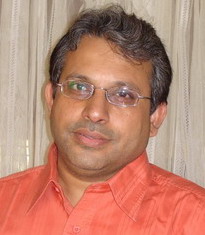
AMARESH CHAKRABARTI
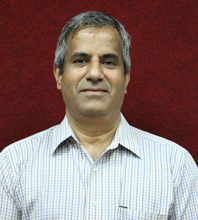
B GURUMOORTHY

ANURAG SRIVASTAVA
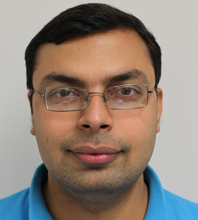
MANISH ARORA
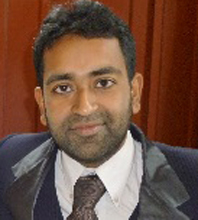
PRADIPTA BISWAS

BHARADWAJ AMRUTHUR
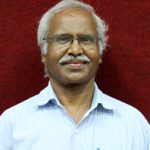
J E DIWAKAR
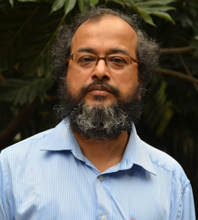
DIBAKAR SEN

ABHRA ROY CHOWDHURY

SATISH VASU KAILAS

ASHITAVA GHOSAL

RAJESH SUNDARESAN
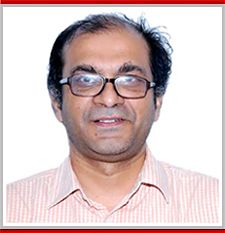
CHIRANJIB BHATTACHARYYA

HARDIK J. PANDYA
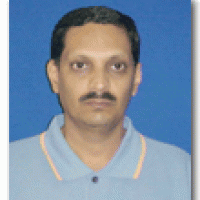
T V PRABHAKAR

DIPANKAR BANERJEE
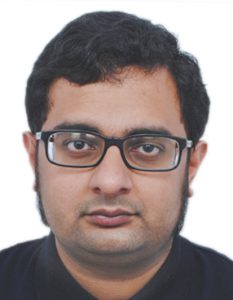
ABHIK CHOUDHURY
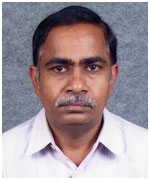
G. MOHAN RAO

ULLAS PRADHAN

THANGA JAWAHAR
Facilities
The smart Factory has the following machines, hardware and software platforms:
- Legacy Platform: All machines below are instrumented with sensors and connected to its digital twin for real-time assessment of KPIs in quality, productivity, efficiency, flexibility, and sustainability:
- Legacy lathes
- Legacy drilling machine
- Legacy milling machine
- Legacy grinding machine
- Manual assembly station with XSENSE body-suit and assembly tools
- Manual Assembly, measurement and Inspection stations
- Legacy Platform: All machines below are instrumented with sensors and connected to its digital twin for real-time assessment of KPIs in quality, productivity, efficiency, flexibility, and sustainability:
- Automated Platform: All machines below are instrumented with sensors and connected to its digital twin for real-time assessment of KPIs in quality, productivity, efficiency, flexibility, and sustainability:
- Metal 3D Printer
- Polymer 3D printer
- Metal Laser Router
- 5-Axis CNC Milling Machine
- Industrial Robot
- Collaborative Robot
- Automated Guided Vehicle
- Automated Platform: All machines below are instrumented with sensors and connected to its digital twin for real-time assessment of KPIs in quality, productivity, efficiency, flexibility, and sustainability:
- Digital Twin
- NX CAD
- TeamCenter PLM
- ThingWorx MES
- Dimomaint ERP
Design Innovation Centre
- Home
- Courses
- Projects
- Covid-19 Projects
- Contact
DESIC, the Design Innovation Centre, at the Centre for Product Design and Manufacturing at Indian Institute of Science, Bangalore, which addresses the bottle-necks in design education through:
AIM and ACTIVITIES
Training The Trainers
Produce faculty and practitioners in Design
-> PhD (6 per year) and Masters (25 per year) in Design
-> 1 Summer school & 2 Design Workshops for design faculty from other institutions each year (20 faculty & 10 students each; up to 5 industry participants)
Design Education
Create and develop content for teaching and learning design on-site and on-line
- Content for teaching/learning Design on-line
- Courses from the M.Des curriculum will be made available on-line by the end of three years.
Design Incubation
Create eco-system for incubating indigenous products into marketplace through licensing and startups
- Products ready for translation to the market through licensing or start-ups (2 per year)
- Facility and framework for full time students as well as teachers from other institutions to participate in new product development projects.
Courses
Man-Machine Interaction
Bio Medical Devices
Intelligent User Interface
Embodiment Design
New Product Development: Concepts and Tools
New Product Development: Strategy and Practice
Summer Courses
Product Design - May 2014
Design Creativity - January 2015
Product Design - June 2015
Product Design - February 2016 (at NIT Calicut)
Product Design - July 2016 Participants : 14 Faculty with 7 from the spoke institutions
TEN PROJECT TEAMS HAVE BEEN SUPPORTED SINCE OCTOBER 2014 UNDER THE ENTREPRENEURS IN RESIDENCE PROGRAM.
Sugar Cane Harvester- Raghu Menon
Cotton Harvester-Vinay Reddy, Nithin Gupta
Multi-utility Agri Vehicle-Ashish Tulkar
Portable Water Purifier-Vinayak Kumar
Solar Indoor Lighting-Anjana V Murthy; Atlin Roy George
Micro Newton Sensor-Dr. Santosh Bhargav D B
Emitter for Fertigation-Dinesh
Cashew fruit Juice Extractor- Tushar Puwar
Critical-Care Training Simulator-Pavan Sridharan
Smart Sleep System-Yogesh Kumar Baghel
Wire Stripping Device-Manish Arora
Infusion Monitoring Device-Manish Arora
Sleep Sense-Yogesh Kumar Baghel
Endoscopy Training Haptic Simulator- Raghu Menon, Shanthanu Chakavarthy, Nitin Shivshankar
KIX-Kithir Kabeeb Nawaz
THE BELOW PRODUCTS ARE DEVELOPED BY THE MHRD SPONSORED DESIGN INNOVATION CENTRE @IISC AND SOCIETY FOR INNOVATION AND DEVELOPMENT TO ENABLE INDIA FIGHT AGAINST COVID-19
UV-based PPE disinfecting case
UV-based Floor cleeaning device
UV-based PPE disinfecting box
PPE Coverall Design
PPE Head and Neck Cover
Bag Valve Mask Automator
(First Prize Winning Entry - NDIN Innovation Challenge for COVID-19)
Reusable Personal Protective Full- Face Shield for Health Workers.
(Second Prize Winning Entry- NDIN Innovation Challenge for COVID 19)
Reusable N95 mask.
(Honourable Mention Winning Entry- NDIN Innovation Challenge for COVID
CONTACT INFO
CO-ORDINATOR
Prof. B. Gurumoorthy
bgm@iisc.ac.in
ADDRESS
2nd Floor CPDM Annexe
Indian Institute of Science, Bangalore
India
Phone: (+91) 80 2293 2978
National Design Innovation Network
- Home
- About
- People
- Facilities
- Contact
Coming Soon...
Coming Soon...
Coming Soon...
Coming Soon...
Coming Soon...
CPDMED TBI
- Home
- Incubation Program
- Incubation Facilities
- Testing Facilities
- People
- Contact
Society for Innovation and Development (SID), IISc in association with Department of Innovation and Technology, Government of Karnataka, has established a MedTech & Geriatric Healthcare Technology Business Incubator (CPDMED TBI) at Centre for Product Design and Manufacturing (CPDM), Indian Institute of Science, Bengaluru. The establishment facilitates innovation and entrepreneurship and invites innovator entrepreneurs for developing and realisation of their ideas from hatching and nurturing through to commercialisation.
MISSON:
Medical Device Innovation for affordable, functional, aesthetic and sustainable hardware-centred technology for the elderly.
VALUE SYSTEM:
SMART WORK SUPPORT SYSTEM for Innovative Ideas with Technology & Business.
VISION:
Excellence in developing affordable healthcare for the elderly.
Applications invited for Incubation at CPDMED TBI, the MedTech TBI at IISc
CPDMED TBI, the MedTech TBI at IISc calls for Applications from interested entities for Incubation in the area of MedTech and Geriatric Healthcare.
Rolling Admissions to CPDMED Technology Business Incubator
CPDMED TBI, the MedTech TBI at IISc announces change in it’s policy of Admissions for incubation from Cohort based admissions to Rolling Admissions due to changed healthcare environment.
Applications for incubation may be sent anytime to srinivasmk@iisc.ac.in
Applications will be reviewed within a week.
An opportunity to present the case will be provided within two weeks of Application, if the initial review panel clears the proposal and final decision conveyed within 3 weeks of receipt of Application.
The Applications should contain the following information
1. Team composition & Leadership
2. Novelty of Idea /Innovation
3. Technology Readiness
4. Business Viability
For whom is Incubation Program aimed at?
A rigorous incubation opportunity for those who have a startup company, a novel idea, design, prototype or product in the area of MedTech & Geriatric Healthcare and are seeking support through our incubation offering for early commercialisation of the same. CPDMED TBI will support in refining the unmet need, development of proof of concept and plan for upscaling and commercialization.
The incubation support includes:
1. Office space, discussions, common utilities like phone, internet etc.
2. Facilities and support for Prototyping, Usability testing, Electronic testing, Simulators, Mechanical Testing, Environmental testing and Biological testing.
3. Training and consultation sessions for Entrepreneurship development, Regulatory and Compliance, Technical support, Quality support etc.
4. Access to professional network groups, investor network etc. for user group connect, identifying financial support opportunities and growth opportunities.
Period
12 Months (extendable up to two years)
Charges
1. Office Space Free.
2. Other facilities may be availed at nominal charges.
Note
1. Shortlisted applicant should undergo for a 1 day Workshop.
2. Incubates will be required to register in State of Karnataka or register with Startup Karnataka.
3. The selected incubates will be required allocate 5% equity of their companies to the TBI.
Incubation facilities:
- Hatcery
- Ideation space
- Designer space
- Maker space
- Conference Room
For more details contact
Srinivas Madhusudan Kandada
Program Manager
CPDMED TBI
Phone: 080-22933687
Mobile: +91 9515106373
srinivasmk@iisc.ac.in
Testing facilities:
- EMI/EMC Testing
- Usability Testing
- Environmental Testing
- Medical Simulation Facility
- Mechanical Testing
- Chemical & Biological Testing
For more details contact
Srinivas Madhusudan Kandada
Head CPDMED TBI
080-22933687
+91 9515106373
srinivasmk@iisc.ac.in

Director, IISC , Bangalore
MSc(BITS Pilani), PhD (University of Maryland, College Park, USA)

Professor
B Tech Mechanical Engineering Indian Institute of Technology Madras (1982)
M. E. Mechanical Engineering, Carnegie Mellon University, Pittsburgh USA (1984)
Ph. D. Mechanical Engineering, Carnegie Mellon University, Pittsburgh USA (1987)

Professor
and Chairman
BE (Mechanical Engineering): IIEST, Shibpur, India
ME (Mechanical Systems Design): IISc, Bangalore, India
PhD (Engineering Design): University of Cambridge, UK

Professor
PhD, IISc, 1997
MSc(Engg), IISc, 1993
BE, REC Durgapur, 1989

Head – Entrepreneurship Cell – SID, IISC, Bangalore

Assistant Professor
BTech. – Chemical Engineering (IIT Delhi)
PhD -Applied Physics (University of Twente, the Netherlands)

Principal Consultant & Program Manager, Medtech & Geriatric Healthcare Technology Business Incubator, IISC, bangalore
BAMS, CP, SPC, NFS(Harvard)

Dr. Balasubramanya S
Senior Consultant (Biotech),
Karnataka Innovation & Technology Society (K-tech),
Dept. of IT, BT and S&T, GOK
Mentors under CPDMED TBI


Srinivas Madhusudan Kandada
Program Manager
CPDMED TBI
Phone: 080-22933687
Mobile: +91 9515106373
srinivasmk@iisc.ac.in
International Collaborations
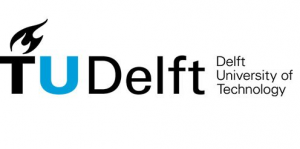
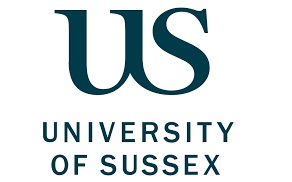

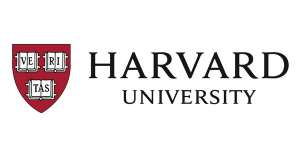
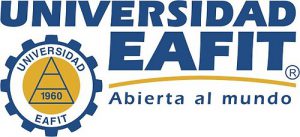
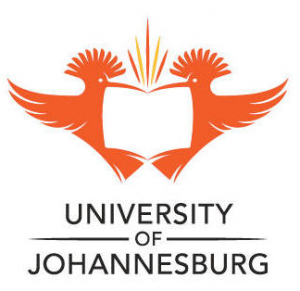
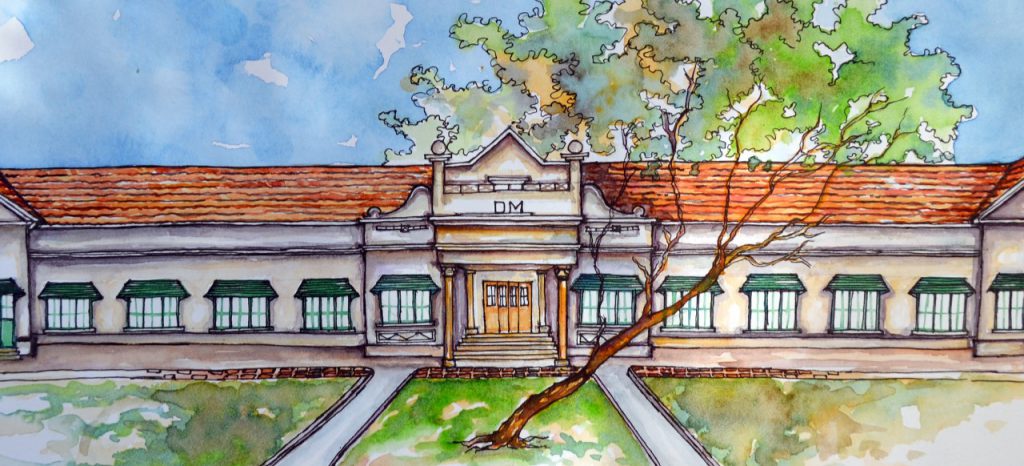

 anuragsrivastava.blr94@gmail.com
anuragsrivastava.blr94@gmail.com
